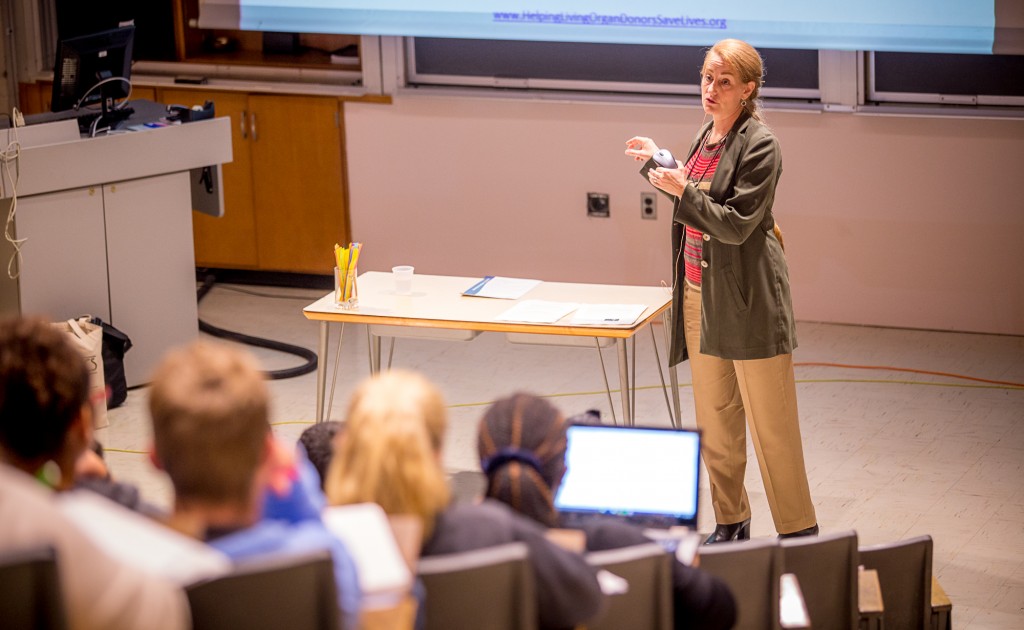Iran’s waiting list of organ donors is in stark contrast to the donor shortage in the United States, where, on average, one American dies every hour for lack of a transplant. This startling fact was shared by Sigrid Fry-Revere, a bioethicist and living donor advocate, at a recent Suter Science Seminar at Eastern Mennonite University.
Fry-Revere has recently helped found a non-profit called American Living Donor Network, an organization that cares for organ donors. Her advocacy has its roots in the experience of being a parent with a child who potentially needed a donor and later, a person who wanted to donate a kidney to ailing friends (an experience she talks about in this TEDMED talk).
During the lecture, Fry-Revere shared how she traveled to Iran after the country’s claim that there was no donor shortage. There, with an Iranian-American kidney doctor named Bahar Bastani, she interviewed people who had been through the Iranian transplant system. When she returned, she wrote a book about her experience titled “The Kidney Sellers: A Journey of Discovery in Iran.”
The most notable difference between the Iranian system and the American system is that, in many regions in Iran, donors are paid. In the United States, it is illegal for the organ recipient or the government to pay the donor for anything other than the medical costs, transportation, and lodging. Often, even these are not paid for unless the donor is in financial need.
The recovery period for the donor is anywhere from one to three months, depending on the donor’s job and whether or not they get an infection. Because of this, the person giving the organ cannot work and pay off bills.
Fry-Revere does not advocate for incentivizing organ donors. She merely wants to remove legal blocks to helping the donor cover basic expenses, such as lost wages. “Covering a donor’s expenses is in no way exploitive. It’s not like creating a market, but there are people out there who say ‘Money exchanges hands. We can’t have that happen,’” said Fry-Revere.
The Iranian system is not perfect. Fry-Revere did not suggest that the United States should copy Iran. There is, however, a respect for the donor’s sacrifice in Iran that does not exist to the same extent in the United States, and that respect gets more people to donate.
By focusing on caring for donors, American Living Organ Donor Network saved 65 lives in two months with $17,000. The non-profit, however, relies on donations and can only save lives when funding is available. For that reason, Fry-Revere asked the audience to go to WTOP radio’s website and choose her organization so that it might receive money from a WTOP radio charity contest.
Fry-Revere spoke as part of EMU’s Suter Science Seminar Series. Lectures are presented by experts in their field and are free and open to the public. Author and minister Tom Wynward will speak about the Anabaptist perspective to climate change, will speak Oct. 2 at 4 p.m. He is also on campus for several other events.
